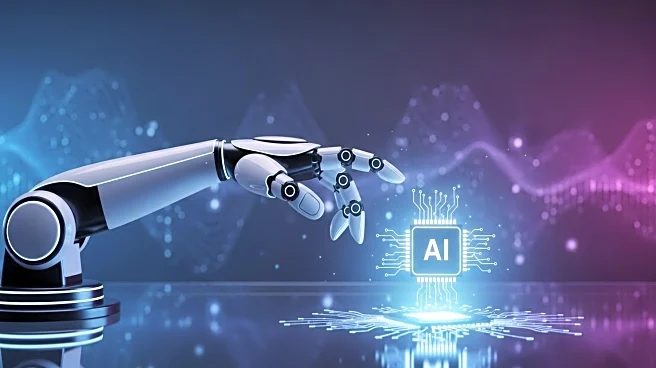What is the story about?
What's Happening?
Nick Hawes, director of the Oxford Robotics Institute and professor of AI and robotics at the University of Oxford, is leading research that is transforming the capabilities of robots in various environments. His work spans from indoor service robots to underwater vehicles and robotics in nuclear settings. Hawes emphasizes the growing autonomy in robotics, which allows robots to operate independently without human intervention, particularly in logistics and inspection tasks. He also highlights the potential of humanoid robots in the next five to ten years and the excitement surrounding foundation models in AI, which compress vast amounts of internet knowledge for quick querying.
Why It's Important?
The integration of AI and robotics into business operations represents a significant shift in how tasks are automated and managed. Autonomous robots can enhance efficiency in logistics and inspection, reducing the need for human oversight and potentially lowering operational costs. The development of humanoid robots could further revolutionize industries by taking on more complex tasks. However, Hawes cautions about the energy demands of AI, which contribute to the climate crisis, and the legal uncertainties surrounding AI use. These factors highlight the need for careful consideration and strategic planning in adopting AI technologies.
What's Next?
As AI and robotics continue to evolve, businesses may increasingly adopt these technologies to improve efficiency and reduce costs. The potential for humanoid robots in business settings could become more viable within the next decade, offering new opportunities for innovation. Organizations will need to address the energy consumption and legal implications of AI integration, ensuring sustainable and compliant practices. The ongoing development of foundation models may further enhance AI's capabilities, allowing for more flexible and general applications in various industries.
Beyond the Headlines
The ethical and legal dimensions of AI and robotics integration are critical considerations for businesses. As these technologies become more embedded in daily operations, companies must navigate issues such as copyright and data privacy. The environmental impact of AI's energy consumption also poses a challenge, requiring industries to balance technological advancement with sustainability. The potential for AI to automate a broader range of tasks could lead to shifts in workforce dynamics, necessitating new skills and roles.














